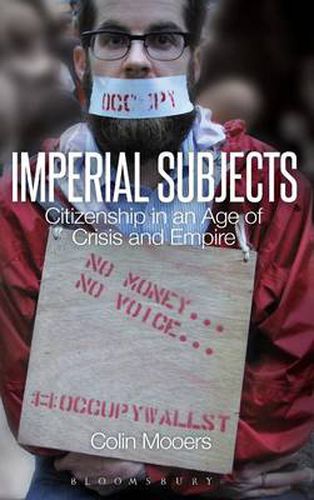Readings Newsletter
Become a Readings Member to make your shopping experience even easier.
Sign in or sign up for free!
You’re not far away from qualifying for FREE standard shipping within Australia
You’ve qualified for FREE standard shipping within Australia
The cart is loading…






This highly original work posits that the changes in the nature of citizenship caused by neoliberal globalization must be understood as the result of an ongoing imperial project.
Although they may seem admirable, policies such as humanitarian and citizenship rights are really an imperial venture led by global institutions and corporations in order to export capitalist market forces worldwide. This entails a form of neoliberal citizenship in which social security is replaced by market insecurity and rising inequality. In this light, the citizen becomes an imperial subject whose needs and desires have been colonized by the global market. However, emerging social forces in Latin America and elsewhere have begun to challenge this imperialist logic, fostering a resistance that may bring forth a new global vision of citizenship.
This unique analysis draws together neoliberal citizenship, new imperialism, and the creation of ‘financial subjects’ into an innovative theoretical exploration. By expanding the debate on global citizenship, Imperial Subjects will engage readers in political and social sciences interested in contemporary political thought, citizenship, and globalization.
$9.00 standard shipping within Australia
FREE standard shipping within Australia for orders over $100.00
Express & International shipping calculated at checkout
Stock availability can be subject to change without notice. We recommend calling the shop or contacting our online team to check availability of low stock items. Please see our Shopping Online page for more details.
This highly original work posits that the changes in the nature of citizenship caused by neoliberal globalization must be understood as the result of an ongoing imperial project.
Although they may seem admirable, policies such as humanitarian and citizenship rights are really an imperial venture led by global institutions and corporations in order to export capitalist market forces worldwide. This entails a form of neoliberal citizenship in which social security is replaced by market insecurity and rising inequality. In this light, the citizen becomes an imperial subject whose needs and desires have been colonized by the global market. However, emerging social forces in Latin America and elsewhere have begun to challenge this imperialist logic, fostering a resistance that may bring forth a new global vision of citizenship.
This unique analysis draws together neoliberal citizenship, new imperialism, and the creation of ‘financial subjects’ into an innovative theoretical exploration. By expanding the debate on global citizenship, Imperial Subjects will engage readers in political and social sciences interested in contemporary political thought, citizenship, and globalization.